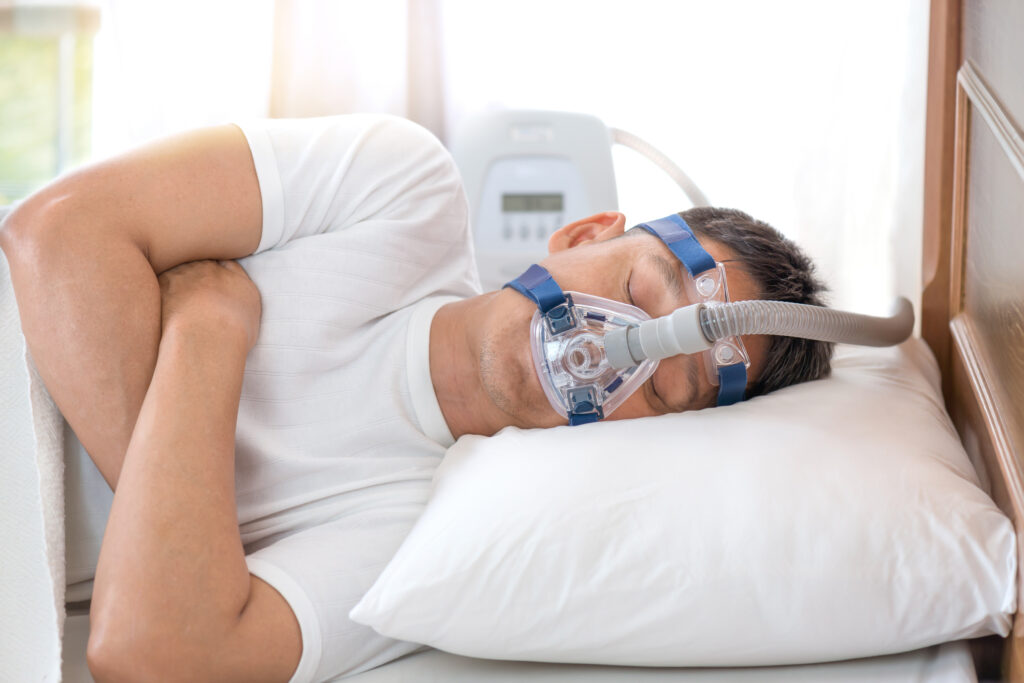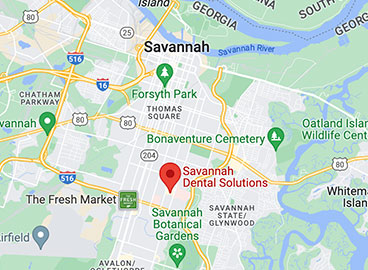Sleep apnea is one of the most commonly diagnosed sleep disorders, affecting an average of 20 million Americans. The actual number is probably even higher, as many cases of sleep apnea go undiagnosed. People who suffer from this disorder experience poor quality sleep, which can negatively affect overall health. Sleep apnea can lead to cardiovascular disease, poor cognitive function, and other health issues.

What causes sleep apnea? And what exactly is it? Learn the answers to these questions and more.
What is Sleep Apnea?
Sleep apnea occurs when a person stops breathing while sleeping. It can happen for a few seconds at a time, or sometimes longer periods of time. The lack of oxygen eventually wakes the person enough that they start breathing again. Often the person goes right back to sleep without realizing what has happened. Other times it can be difficult to fall back asleep afterwards. These periods where breathing stops can happen anywhere from 5 to 30 times in an hour.
Causes of Sleep Apnea
So, what causes sleep apnea to occur? There are two different causes, which define the two main types of sleep apnea.
Obstructive Sleep Apnea. This occurs when the muscles in the throat relax and block the airway. The uvula (the flap of tissue that closes your nasal passages when you swallow), the walls of the throat, and the tonsils all collapse when they are not being supported by the throat muscles. The airway narrows or becomes blocked completely, causing snoring, snorting, and lapses in the regular breathing pattern. When your brain realizes that you can’t breathe, you naturally wake up enough to change positions and start breathing again. This pattern can repeat itself all night, preventing you from ever reaching a deep, restful sleep cycle.
Central Sleep Apnea. This type is much less common, but it still occurs. In some cases, the brain itself fails to send the message to the muscles that are responsible for your breathing. When this happens, you stop breathing for a period of time and may wake up gasping for air. It can be difficult to fall back asleep afterwards, resulting in a lack of sleep or poor quality sleep.
Some people have a combination of these two types of sleep apnea, which is even less common.
Risk Factors for Sleep Apnea
There are a handful of factors that increase your chances of developing sleep apnea, such as:
- – Being Overweight. If you’re overweight, there can be fat deposits around your neck and upper airway that may cause obstructive sleep apnea.
- – Smoking. Inflammation of the airways and excess fluid can result from smoking, which can cause sleep apnea.
- – Drinking Alcohol. Alcohol can cause the throat muscles to relax, which increases the chances of sleep apnea. This is why some people snore when they drink.
- – Medical Conditions. High blood pressure, type 2 diabetes, heart disease, stroke, Parkinson’s disease, polycystic ovary syndrome, hormonal disorders, asthma, allergies, and other respiratory conditions can all increase your chances of developing sleep apnea.
- – Body Structure. Sometimes the natural structure and size of your body can increase your chances of having sleep apnea. If you have a naturally narrow airway, a thick neck, or blocked nasal passages, it can cause you to have trouble breathing while sleeping.
- – Age. The older you are, the greater your chances of developing sleep apnea.
- – Heredity. If your parents and grandparents suffer from sleep apnea, the chances are higher that you will too.
- – Gender. Sleep apnea is more common in men than in women, although it can occur in either gender.
Treatment for Sleep Apnea
There are few different remedies for sleep apnea. Of course, the best option is to treat the problem at the source, such as losing weight or quitting smoking. However, if those options don’t work or if you need immediate treatment, there are other options.
- – CPAP. CPAP stands for Continuous Positive Airway Pressure. A CPAP machine comprises a mask you wear over your mouth and nose that will deliver consistent air pressure to keep your airway open. Some find that wearing a mask to sleep is cumbersome and uncomfortable, but you will most likely get used to it over time. The benefits of CPAP use are definitely worth it.
- – Oral Appliances. Sometimes all that is required to stop sleep apnea is to wear an oral appliance, such as a snoring mouth guard. This type of appliance is worn in the mouth to reposition the jaw and tongue to keep the airway open while you sleep. Some people find it more comfortable and easier to use than a CPAP machine.
- – Oxygen. For those who suffer from central sleep apnea, meaning the cause of the breathing issues is in the brain and not the airway, supplemental oxygen can help. Wearing an oxygen mask or a nasal cannula at night can deliver extra oxygen to lessen the effects of lapses in breathing.
Looking for Sleep Apnea Relief? Savannah Dental Solutions Can Help
Now that you know what causes sleep apnea, you can look into options for treatment. If you suffer from poor quality sleep because of sleep apnea, start with a snoring mouth guard. With sleep apnea treatment, a mouthpiece is a much simpler option than a CPAP machine. Your sleep apnea may be able to be cured more easily and affordably through an oral appliance custom made by the experts at Savannah Dental Solutions.
Call (912) 354-1366 or contact us today to schedule a consultation. We look forward to helping you get better quality sleep for better quality of life.






